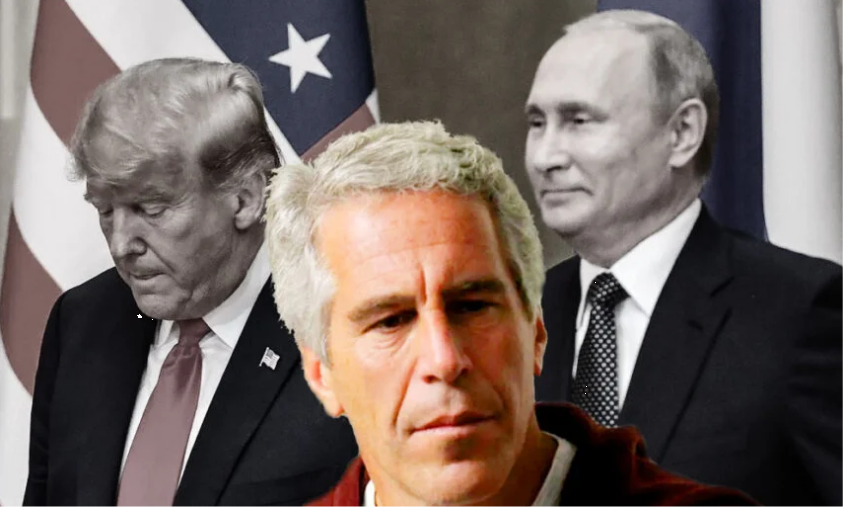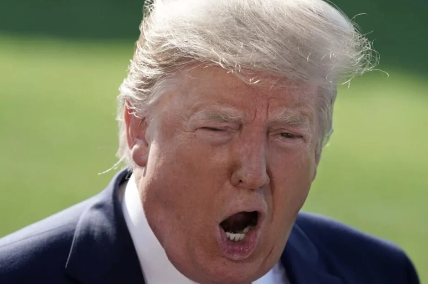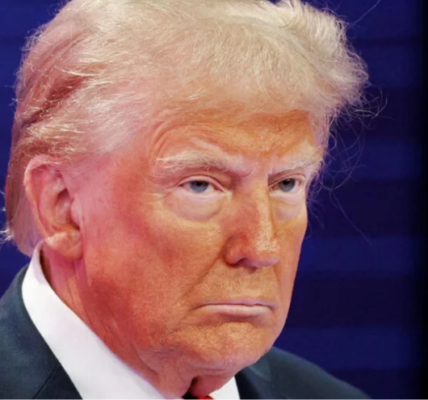
The tumultuous saga surrounding Jeffrey Epstein’s dark legacy has once again thrust into the spotlight, not only for its appalling revelations but also for the tantalizing questions it raises about the powerful figures entangled in his web. Amidst the recently unsealed court documents lies a particularly provocative assertion: the existence of sex tapes implicating high-profile personalities, including former President Donald Trump.
Sarah Ransome, an alleged victim of Epstein, claimed in bombshell emails that such tapes exist, potentially featuring Trump in compromising situations. While these claims are yet to be substantiated, they have reignited speculation about the extent of Epstein’s hold over influential figures and the potential leverage these tapes could offer.
Ransome reportedly said that she had contacted “the Russians” after alleging that her emails had been hacked.
One can’t help but wonder: Could these tapes hold the key to understanding Trump’s baffling deference to Russian President Vladimir Putin? Throughout his presidency, Trump’s unusual affinity for Putin raised eyebrows and prompted numerous theories. From dismissing Russian election interference to secretive, one-on-one meetings shielded even from his closest advisors, Trump’s actions have fueled suspicions of deeper ties.
The New York Times report detailing FBI concerns about Trump’s possible covert ties to Russia adds another layer of intrigue. The Bureau actually launched a counterintelligence investigation to determine if Trump was a foreign agent.
Their investigation was triggered by Trump’s firing of FBI Director James Comey and, the very next day, telling top Russian diplomats in the Oval Office: “I just fired the head of the FBI. He was crazy, a real nut job. I faced great pressure because of Russia. That’s taken off.”
In addition to The New York Times bombshell, The Washington Post reported that Trump took extraordinary measures to conceal the contents of his one-on-one discussions with Putin on five separate occasions. Shockingly, neither the secretary of State, the national security adviser, nor other top national security personnel were allowed to attend these private meetings or briefed afterward. Following a 2017 meeting with Putin in Hamburg, Trump even confiscated the interpreter’s notes and imposed a ban on discussing the meeting’s details with other administration officials.
These revelations reignite a question that has echoed since Trump entered the political stage: Why is he so cozy with Putin? What leverage does Putin hold over him? Could it stem from Trump’s business ventures in Russia, financial entanglements, allegations of money laundering, or even the infamous “pee tape”? Alternatively, could the Epstein alleged sex tapes hold the key to understanding their relationship?
The notion that Russia could possess compromising material on Trump isn’t far-fetched. If indeed such tapes exist, as hinted by Ransome, their existence could explain Trump’s seemingly inexplicable behavior towards Russia. The fear of exposure could potentially explain his reluctance to confront Putin on critical issues, his resistance to sanctions against Russia, and his avoidance of public scrutiny over private conversations.
Moreover, the possibility that Russian intelligence, notorious for its strategic use of kompromat (compromising material), could have gained access to Epstein’s tapes raises troubling questions about Trump’s vulnerability to manipulation.
While the veracity of Ransome’s claims remains a subject of investigation, their implications are profound, and the public is left grappling with uncomfortable truths and unanswered questions. How deep do these connections go? What are the implications for national security and international relations? And crucially, what role does transparency play in safeguarding democratic institutions from undue influence?
As these revelations unfold, one thing remains clear: the Epstein tapes, whether real or rumored, have cast a long shadow over the Trump candidacy, stirring a debate that transcends partisan lines and demands accountability.



